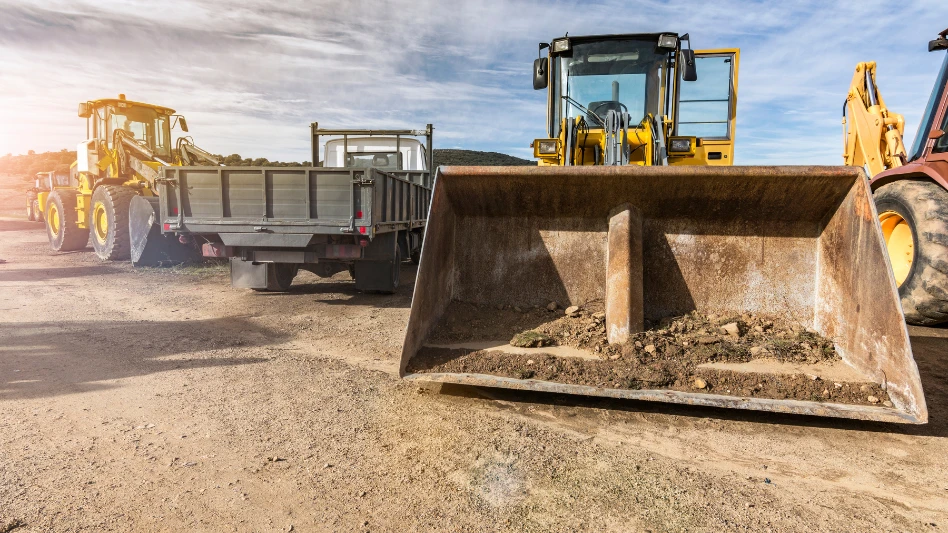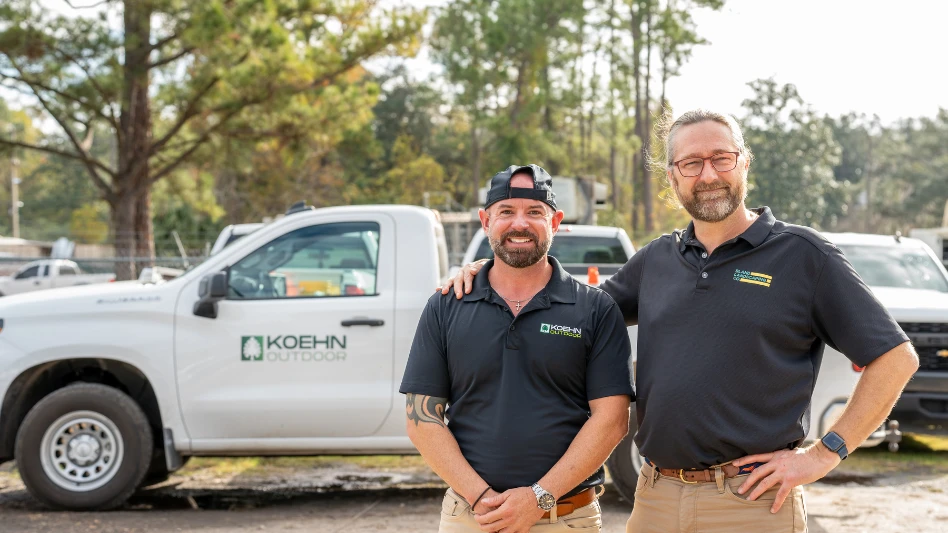 Robert Glennon. Photo by Daniel SnyderRobert Glennon lives in Arizona. It’s hot. It’s dry. The grass, the flowers, the cats, the dogs – they all scream for water.
Robert Glennon. Photo by Daniel SnyderRobert Glennon lives in Arizona. It’s hot. It’s dry. The grass, the flowers, the cats, the dogs – they all scream for water.
But Glennon believes there will be a time when the luscious East is also screaming for water. In his second book, “Unquenchable: America’s Water Crisis and What to Do About It,” Glennon attempts to present solutions to the ever present problem of water. Las Vegas has suggested importing Mississippi River water to solve its shortage problems, Tennessee has had to truck in water from Alabama when it ran out and Lake Superior (the largest freshwater body on Earth) was too shallow to float cargo ships in the summer of 2009.
Glennon says those in the landscaping industry have made large gains for a greener environment, but unless Americans understand the value of water, the latest gizmos and gadgets for water conservation won’t interest them.
What led you to write “Unquenchable”?
I did another book, “Water Follies,” that led me to give talks in 30-something states. In the course of that, I realized there were some real problems in sections of the countries that weren’t water scarce, like Florida, Georgia, North Carolina. I also had a project going on to study what was going on in the West, how water was being reallocated by sales and leases of water. There were people who needed new supplies and were going to farmers and asking them to sell some water. I wanted to write a book that would really resonate with the general public, not just about ground water or surface water, not just the West but also the East that included conservation, dam building and environmental problems.
How are landscape and lawncare professionals handling water?
The people who are working with water – turf, xeriscaping, residential, commercial – they all take pride in what they’re doing. They don’t want to waste water. If they do, they’re threatening their own livelihood in the business.
How do you feel about landscaping companies current use of irrigation techniques?
From my perspective, there’s been some tremendous sophistication for some years. There are smart controllers that use satellite data that can tap into soil sensors. There’s all kinds of neat stuff out there. The technology is there to use water very efficiently. I don’t think there are financial incentives to do so. The price of water is too low. Unless we price it right, people won’t take advantage of the great technology in the industry.
The Irrigation Association recently released a report saying the country used slightly less water in 2005 than in 2000. How do you think it will look in 2010?
Water use has gone down. I think it is absolutely due to changes in the irrigation processes, particularly in the agriculture sector. They’re changing from flood irrigation to center pivot systems and from center pivot systems to drip or micro-irrigation. There is considerable conservation that has come from those practices. There are two problems. The fact that overall national use went down obscures the fact that regionally, we have huge shortages. That’s the problem, the fact that nationwide the overall use is down slightly obscures the fact that people are moving from where the water is to where it isn’t. California, Nevada, New Mexico, Texas, Florida, Georgia – the fastest growing states in the country are suffering water shortages.
The report is largely based not on people actually using less water, because the number of people (in the country) went up. What really affected the numbers is that industries used less. Power plants used less. With the federal Clean Water Act, it was going to be expensive for industries if they didn’t figure out ways to use water more efficiently. Intel has reduced its water use by 75 percent, but how much more could they reduce? They’re not going to go down another 22 percent to only 3 percent. Both industry and power industry have made substantial improvements in their water use, but we can’t expect that to happen again. There are a lot of demands in new energy.
It’s not an environmental problem, but an economic problem.
What do most people not know about the politics behind water?
Most people don’t even know where their water comes from. There are public opinions in California that show people are woefully ignorant of where their water is coming from. There’s a real challenge for people who are in the water business to try and show people this is a scarce resource.
You can have conservation programs where you run education campaigns. You could have rules and regulations that prohibit watering lawns a certain number of times a week. What we haven’t done in the United States is use price signals. We Americans are spoiled. We wake up in the morning and we turn on the tap and it’s less money than we pay for cell phone service or cable television. It’s very frustrating. There are lots of neat tools out there (for landscape professionals), but in many situations, it’s not even worth installing the meters or the other gizmos because the price of water is so low. The average homeowner has no interest in saving water. As I go around speaking to people in the irrigation business, I hear these horror stories of customers who just don’t have any interest in saving water because the water rates are so cheap. That’s a huge problem.
Have we learned anything from extreme situations? Have ‘temporary’ attitudes – like when a drought limits water use – turned into permanent conservation?
All too often it doesn’t. Georgia is a good example: They didn’t learn a darn thing from the drought. Nothing substantial has changed in Georgia. They saw themselves facing a crisis and they did nothing. They took short-term action. It was a band-aid over the wound. And that’s karma. Apathy rules.
The author is an intern at Lawn & Landscape magazine. She can be reached at kpickerel@gie.net.

Explore the January 2010 Issue
Check out more from this issue and find your next story to read.
Latest from Lawn & Landscape
- Analysis of an entrepreneur
- Terra Nova's Sedum Conga Line variety wins Best of 2024 Perennial award
- Different ways to distribute
- Case's 580EV electric backhoe loader wins Good Design Award
- Davey Tree promotes Dan Herms to VP, GM of Davey Institute
- Caterpillar's Cheryl H. Johnson set for April retirement
- Registration open for sixth annual Lawn & Landscape Technology Conference
- 12 interview questions to help you hire winners





